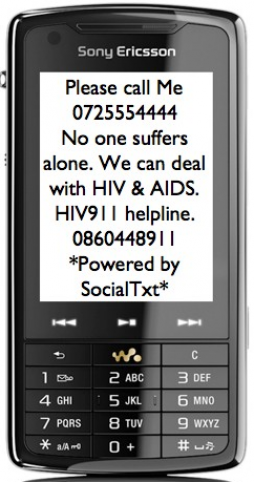mobile communication
Posted by VivianOnano on Jul 12, 2011
Mobile Telephony Access and Usage in Africa data sheet 1637 Views
Author:
Chabossou, A., Stork, C., Stork, M., Zahonogo. Z.
Abstract:
This paper uses data from nationally representative household survey conducted in 17 African countries to analyse mobile adoption and usage. This paper shows that countries differ in their levels of ICT adoption and usage and also in factors that influence adoption and usage. Income and education vastly enhances mobile adoption but gender, age and membership in social networks have little impact. Income is the main explanatory variable for usage. In terms of mobile expenditure the study also finds linkages to fixed-line, work and public phone usages. These linkages need however be explored in more detail in future. Mobile expenditure is inelastic with respect to income, ie the share of mobile expenditure of individual income increases less than 1% for each 1% increase in income. This indicates that people with higher income spend a smaller proportion of their income on mobile expenditure compared to those with less income.
The study provides tools to identify policy intervention to improve ICT take up and usage and define universal service obligations based on income and monthly usage costs. It help to put a number to what can be expected from lower access and usage costs in terms of market volume and number of new subscribers. Linking this to other economic data such as national household income and expenditure surveys and GDP calculation would allow to forecast the economic and social impact of policy interventions. Concrete recommendations are being made for policy interventions and regulatory measures to decrease access and usage costs.
Posted by VivianOnano on Jun 07, 2011
Talking About Killing: Cell Phones, Collective Action, and Insurgent Violence in Iraq data sheet 1131 Views
Author:
Shapiro, N. Jacob and Nils B. Weidmann
Abstract:
Cell phones are assumed to enhance communication among insurgents, thus making it possible for them to coordinate more effectively. On the other hand, mobile communications can also hamper insurgent activity, by allowing the population to share information with counterinsurgents.
This paper makes a first attempt to provide a systematic test of the effect of cell phone communication on conflict. Using data on Iraq’s cell phone network as well as event data on violence, we assess this effect at two levels. First, we analyze how violence at the district level changes as a result of the introduction of new cell phone towers. Second, using a novel identification strategy, we examine how insurgent operation in the tower’s vicinity is affected by the introduction of coverage.
Taken together, our results show that mobile communication seems to increase the information flow from the population to the military, thus reducing insurgent effectiveness and ultimately, violence.
Posted by MarkWeingarten on Jan 13, 2011
Stories from the Field: Mobile Phone Usage and its Impact on People’s Lives in East Africa data sheet 1224 Views
Author:
Tomitsch, M., F. Sturm, M. Konzett, A. Bolin, I. Wagner, and T. Grechenig
Abstract:
In this paper we present results from contextual interviews and observations, which we conducted in Tanzania over a period of six weeks. In our interviews we focused on use cases and benefits that the mobile phone introduced in these areas. Specifically we were interested in the impact of mobile ICTs on social networks in general and communication with friends and family in particular. The goal of the study was to identify potential areas where ICTs could improve people's lives. Based on an analysis of the results from this study we created personas, which describe archetype mobile phone users and their respective needs and goals. The paper concludes with a number of directions for further research in this area.
Posted by CorinneRamey on Dec 15, 2007
"Please Call Me" messages are a popular cultural form of mobile communication in South African society. These USSD messages are used to advertise everything from car insurance to domestic airlines to the local corner store. Today, thanks to a recent project by SocialTxt, these free messages are used for the first time ever for social marketing: to encourage South Africans to get tested for HIV and obtain AIDS information.

